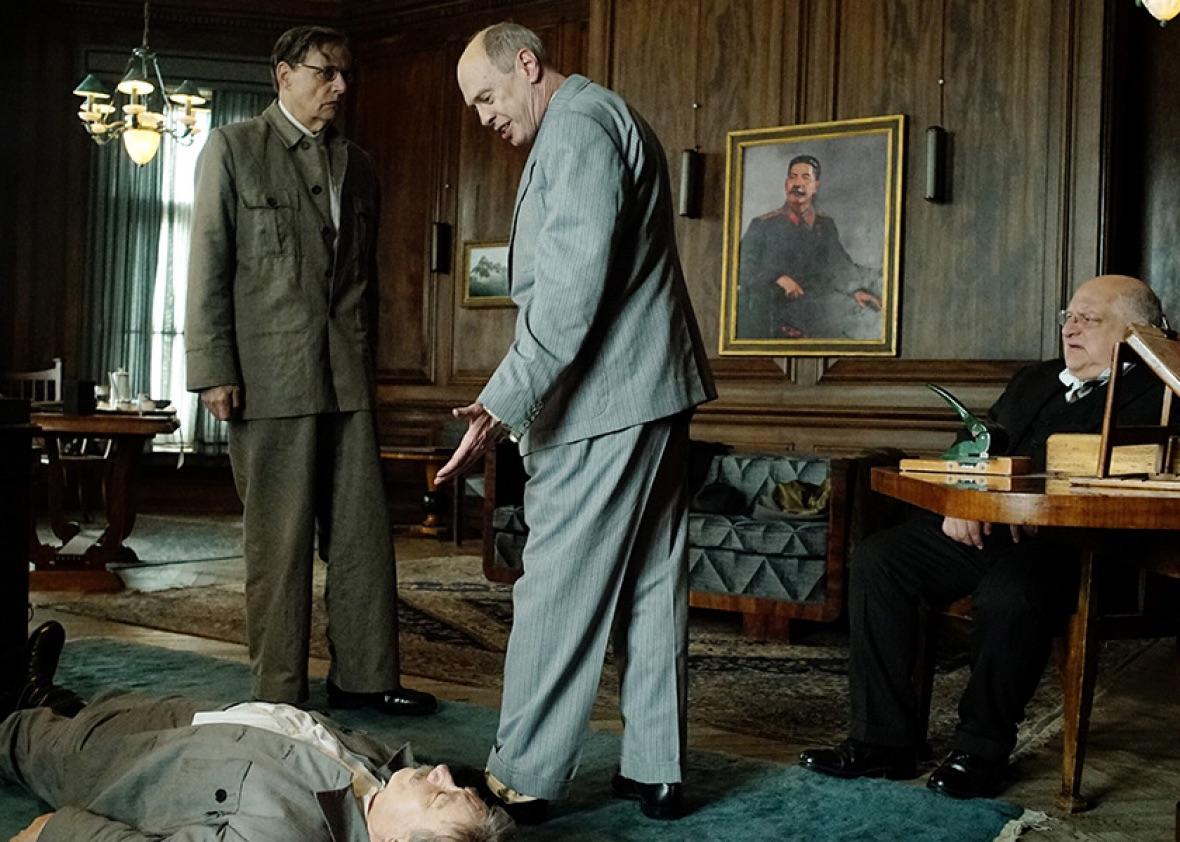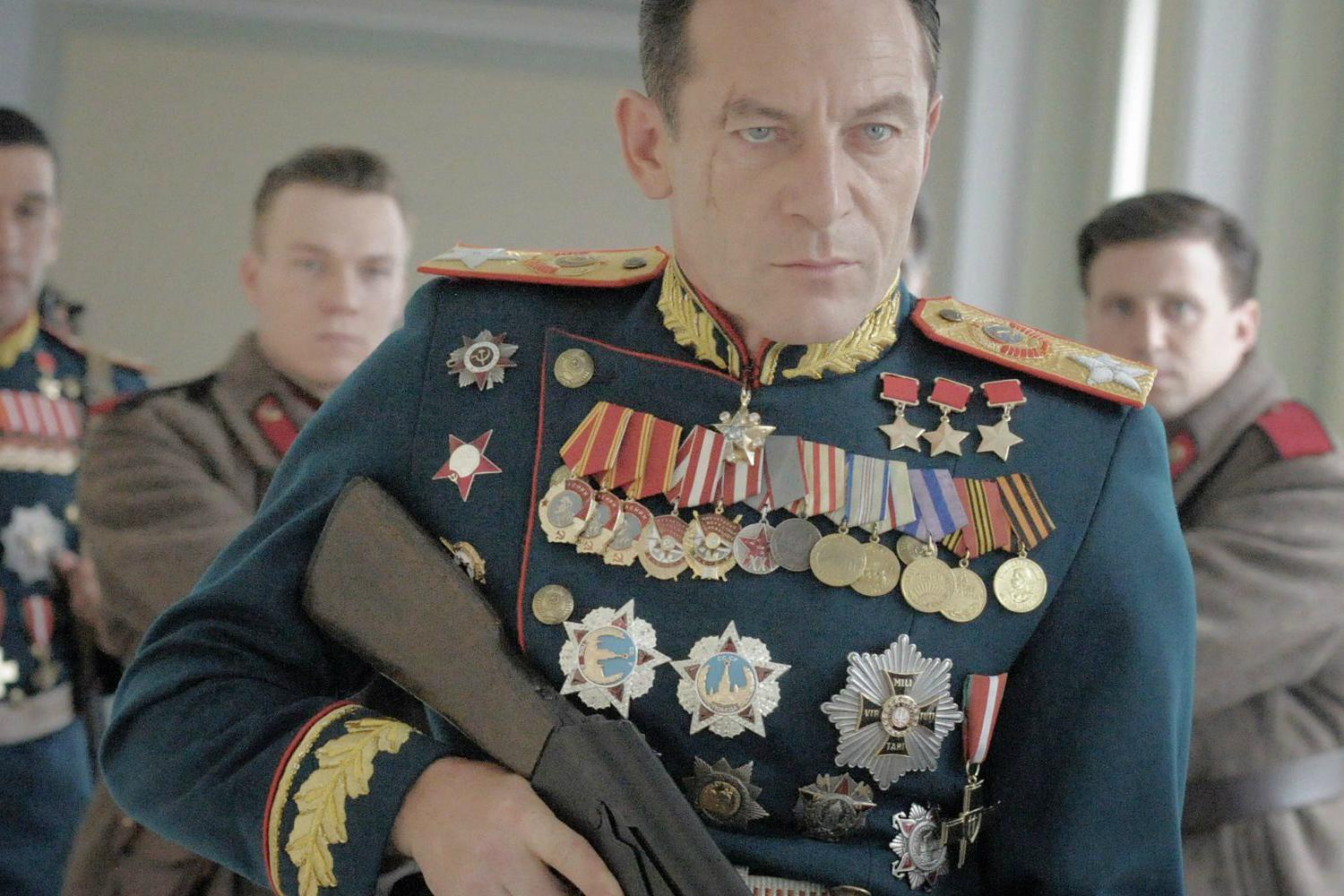Russian cinema defies Kremlin ban to screen The Death of Stalin
Vladimir Putin's government takes exception to Armando Iannucci's 1953-set succession satire on the grounds that it mocks Soviet history
Your support helps us to tell the story
From reproductive rights to climate change to Big Tech, The Independent is on the ground when the story is developing. Whether it's investigating the financials of Elon Musk's pro-Trump PAC or producing our latest documentary, 'The A Word', which shines a light on the American women fighting for reproductive rights, we know how important it is to parse out the facts from the messaging.
At such a critical moment in US history, we need reporters on the ground. Your donation allows us to keep sending journalists to speak to both sides of the story.
The Independent is trusted by Americans across the entire political spectrum. And unlike many other quality news outlets, we choose not to lock Americans out of our reporting and analysis with paywalls. We believe quality journalism should be available to everyone, paid for by those who can afford it.
Your support makes all the difference.A Russian art house cinema defied a government ban on Thursday to screen satirical film The Death of Stalin to a packed audience that included at least two people who said they witnessed the Soviet dictator's funeral six decades ago.
The Russian government said the movie mocks the country's past, but Dina Voronova and Ella Katz - schoolgirls when Joseph Stalin died in 1953 - said they applauded when the credits rolled at the end of the screening in Moscow.
“I liked the film. I never expected to see our former government leaders depicted like that,” said Voronova, 80, a former pre-school head teacher who remembers seeing Stalin's body in an open casket at the funeral.
The film, the work of Scottish director Armando Iannucci, portrays back-stabbing and infighting among the dictator's closest allies, as they vie for power immediately after his death. In the backdrop, ordinary Russians suffer the many repressions of that era.
“I didn't laugh. There were some funny moments in the film, but I couldn't laugh, because that was my life,” Voronova said, adding that she was not offended by the film.

“Why should I be? I have my own opinion. The fact that I didn't have a childhood, that I didn't have a youth at all, that's Stalin's fault.”
Ella Katz said she attended the funeral when she was in third grade.
“[The film] is not offensive. How could it be? How?... The reality was much more terrifying than in this film,” she said.
Earlier this week, the culture ministry withdrew a licence for the movie's general release.
Asked about the screening at Moscow's Pioneer cinema, the ministry said in a statement that anyone defying its ban would be held legally accountable for their actions. Staff at the cinema declined to comment on the legality of the screening.
“Many people of the older generation, and not only, will regard it as an insulting mockery of all the Soviet past, of the country that defeated fascism and of ordinary people, and what's even worse, even of the victims of Stalinism,” Culture Minister Vladimir Medinsky said in a statement.

Watch Apple TV+ free for 7 days
New subscribers only. £8.99/mo. after free trial. Plan auto-renews until cancelled

Watch Apple TV+ free for 7 days
New subscribers only. £8.99/mo. after free trial. Plan auto-renews until cancelled

One of the audience members, 40-year-old businessman Denis Aksyonov, said he liked US television satire Veep, which Iannucci created, and expected The Death of Stalin to be similarly entertaining.
“I think it's healthy to laugh about difficult issues, I think that makes it easier and less difficult for society to deal with them,” Aksyonov said before the screening.
He said it was regrettable that a political storm had been whipped up around the film, but that he tried to ignore such things. “Well done to Pioneer for putting on the screening, they are demonstrating their civic stance,” he said.
Stalin was repudiated by the Soviet Union after his death. He is recognised as responsible for the deaths of millions, from policies that included the forced collectivisation of farms that caused famine, and from a succession of purges that saw mass executions and imprisonment at an archipelago of camps.
But Stalin's leadership during World War Two, when the Red Army beat back a German occupation, is still associated by many Russians with the country's greatest achievements.
Russian President Vladimir Putin, running for re-election in March, has called Stalin “a complex figure” and said attempts to demonise him were a ploy to attack Russia.
Reuters

Join our commenting forum
Join thought-provoking conversations, follow other Independent readers and see their replies
Comments